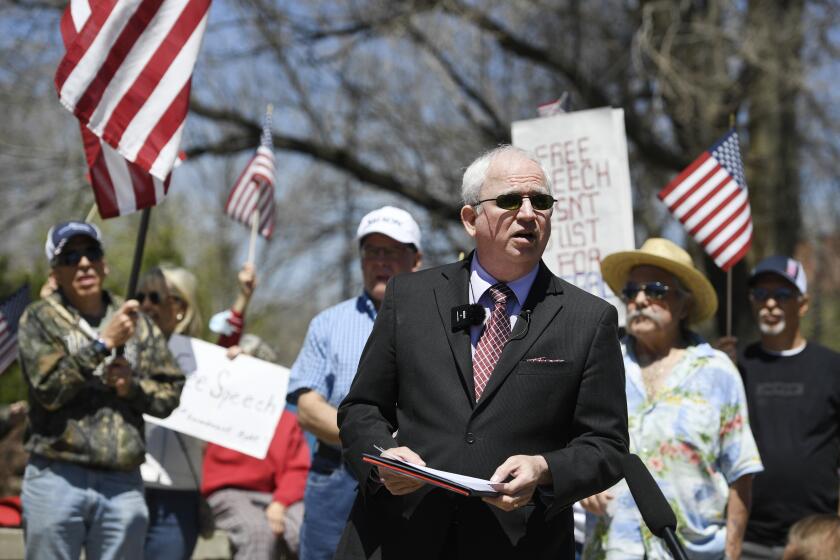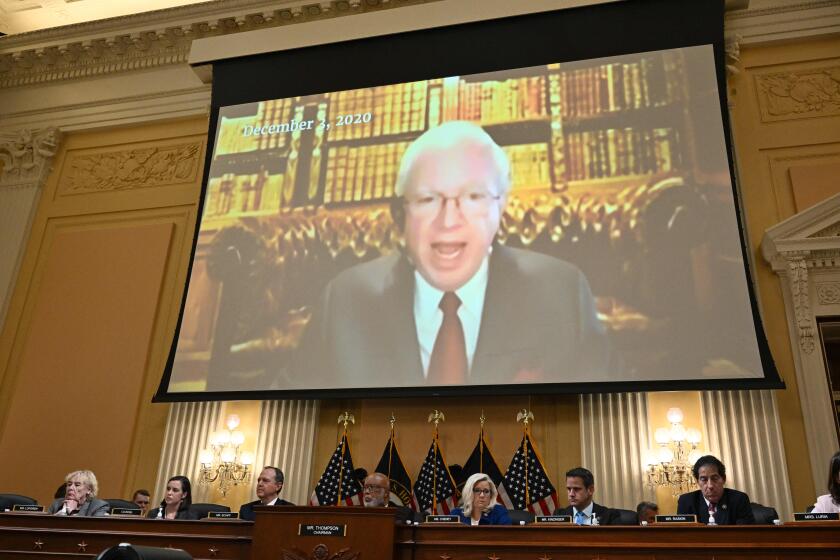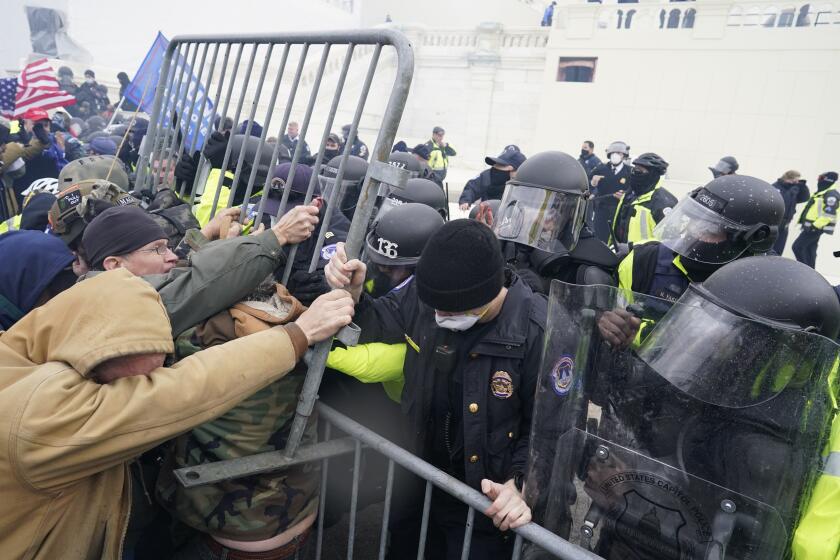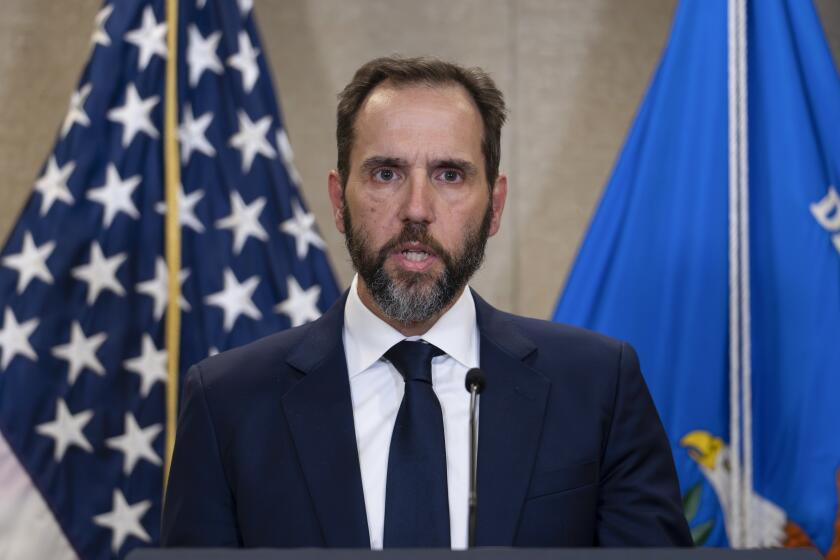Editorial: John Eastman tried to help Trump overturn the 2020 election. Of course he should be disbarred
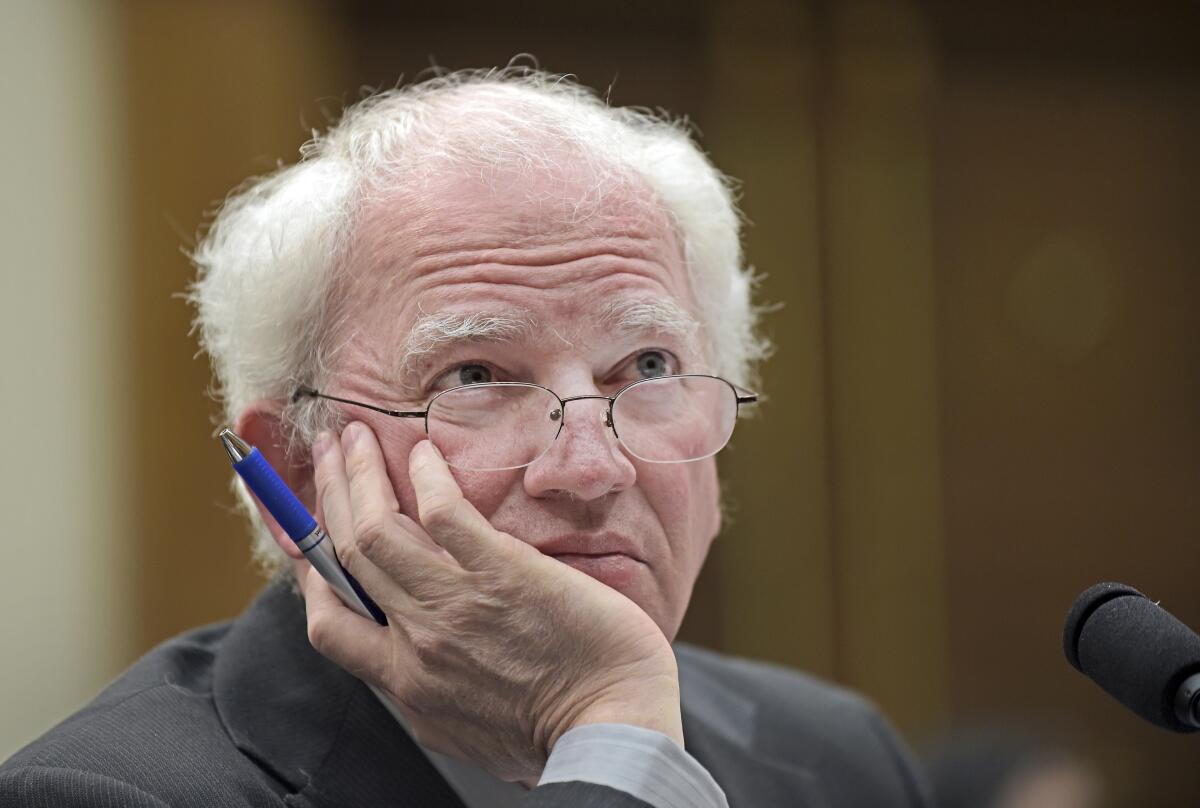
- Share via
When lawyers lose their licenses to practice law, it’s typically because they mistreated their clients. Perhaps they improperly spent the client’s money to pay off personal bills, rather than to hire investigators or experts, or otherwise work on the case. Maybe they regularly failed to meet deadlines for filing court papers, or just weren’t sufficiently zealous in representing their clients’ interests.
The State Bar of California’s case against attorney and legal scholar John C. Eastman was quite different.
Eastman was zealous, and then some, in crafting legal arguments and strategies that attempted to justify the disproven claims of his client — Donald Trump — that he was cheated out of reelection in 2020, and that Vice President Mike Pence had superpowers to accept or reject state election results involving Trump’s candidacy, and his own.
Only rarely do licensing authorities discipline lawyers for going overboard on their clients’ behalf, and for good reason. Lawyers should have leeway to try a range of arguments and legal theories, and should not be sanctioned for being novel or even audacious in advocating for their clients. They should not be punished for arguing theories not currently in vogue. They are protected by the 1st Amendment.
At some point, Eastman changed for the worse. The man I remember became a full-on culture warrior.
Up to a point.
A lawyer’s duty, crucially, extends beyond the client. Attorneys are officers of the court, and key figures in a system whose purpose is to determine the truth, apply the law and achieve justice. California lawyers take an oath to support the Constitution and to conduct themselves with integrity.
A State Bar Court judge on Wednesday ruled — appropriately and wisely — that in providing legal cover for Trump’s dishonest bid to subvert the 2020 election, Eastman violated his oath, undermined the quest for truth and justice, and inflicted serious and perhaps lasting damage on the very institutions of democracy and law that are the foundation of his profession.
John Eastman, the former Trump lawyer who helped foment the plan to invalidate the 2020 election results, left the Chapman University law faculty last year. But his legacy still sparks campus questions.
Notwithstanding Eastman’s reputation as a legal scholar and former dean of Chapman Law School in Orange — and as a 2010 candidate for California attorney general — Judge Yvette Roland recommended that he be permanently disbarred.
The final decision is up to the state Supreme Court.
It would best serve California, the legal profession and election integrity for the court to follow Roland’s recommendation. Eastman’s conduct was egregious. As Trump was selling his election fraud fairy tale to the public, and after states’ election officials certified slates of electors, state and federal courts rejected suits to overturn the certifications and state legislatures rejected challenges, Eastman wrote two memos mapping out plans for Pence to ignore all of those actions on Jan. 6, 2021.
The attack on the U.S. Capitol was a consequence of one Big Lie about the 2020 presidential election heaped atop a slew of marginally smaller lies.
In the words of the State Bar’s trial counsel, Eastman demonstrated that he knew his role as Trump’s lawyer “was not to provide good faith advocacy, but to fabricate an illusion of legality to an illegal effort to delay the formal recognition of Trump’s obvious defeat by any means possible.”
He used his law license to provide cover for an illegal scheme. He counseled Pence to break the law. He made, or stood behind, statements that he almost certainly knew to be false, such as an argument by Texas officials in its lawsuit to undermine the election that the probability of Biden actually winning in four states — given Trump’s lead in early election night counting — were “less than one in a quadrillion to the fourth power.” His legal arguments were specious.
Special counsel Jack Smith has the right to ask the Supreme Court to expedite the former president’s case. Time is of the essence because Trump could be the GOP’s 2024 presidential nominee.
Roland cited the example of Donald Segretti, a California lawyer who became infamous during the Watergate scandal amid President Nixon’s 1972 reelection campaign. Segretti’s misconduct was child’s play in comparison to Eastman’s. He faked letters to stir chaos among Democratic candidates. His dirty tricks had nothing to do with his being a lawyer, yet he was suspended from law practice for two years for failing to uphold the ethical standards of the legal profession.
Eastman’s actions were infinitely worse and require much tougher sanctions. He didn’t merely lie in an attempt to change voters’ minds. He actively tried to disenfranchise voters who had already cast their ballots, in what Roland called “an egregious and unprecedented attack on our democracy.”
Did Trump commit a crime when he relied on Eastman’s legal arguments to subvert the 2020 presidential election? Did Eastman? That question may ultimately come before a Georgia jury. The question currently before the California Supreme Court is whether, given all of the former president’s misconduct, his lawyer is fit to remain an officer of the court in this state.
The answer should be obvious.
More to Read
A cure for the common opinion
Get thought-provoking perspectives with our weekly newsletter.
You may occasionally receive promotional content from the Los Angeles Times.
